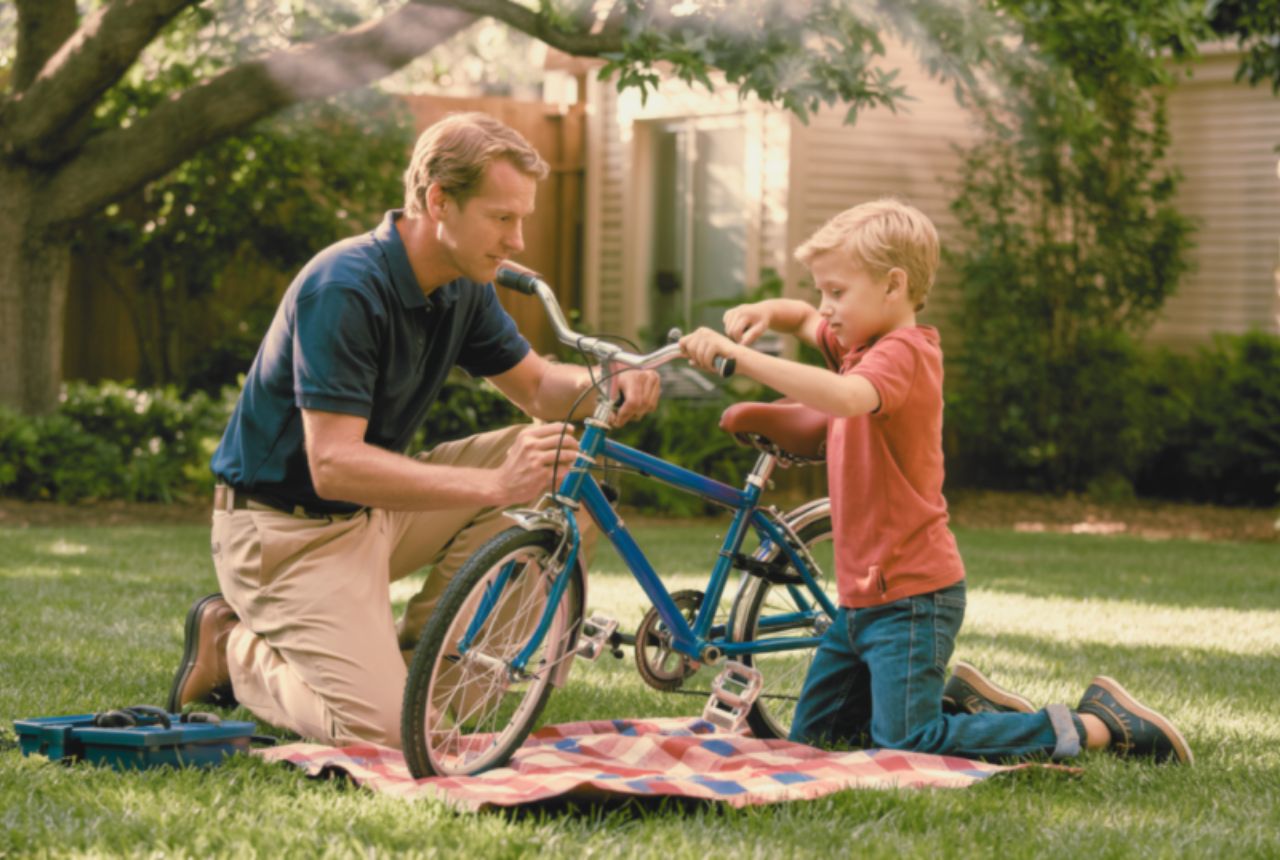Have you ever caught yourself doing something and thought, “Wow, that’s exactly what my parents used to do”? I know I have. Even though my folks and I come from two very different generations, I’m often surprised by how many of their habits have quietly found their way into my life.
Growing up, I didn’t always see eye to eye with my Boomer parents—they had their own set of values, and I was off discovering new ways of looking at the world. Fast forward to my 30s, and suddenly, I’m grocery shopping with a list, turning off lights in empty rooms, and reminding myself to ‘just call and check in.’
The funny thing is, these little things you absorb from your parents often go unnoticed—until one day, you catch yourself repeating their words or following their routines.
And guess what? A lot of us Millennials do it, picking up good habits from our Boomer parents without even realizing it.
Let’s explore five of those habits and why they still matter today.

1. Leaving voicemails (yes, really)
Remember when voicemails were the norm? Boomers mastered the art of leaving a concise, informative message—name, reason for calling, and a friendly “call me back when you can.”
While we Millennials grew up in the age of texting and missed calls speaking for themselves, many of us are now circling back to this old-school habit.
But here’s the twist: we’ve updated it for the times. Instead of traditional voicemails, we’re dropping WhatsApp voice messages—sometimes quick, sometimes a full podcast-length rant. It’s the same spirit of personal, spoken communication, just with more emoji flair and less waiting for the beep.
Whether it’s leaving a message for a friend who’s always on Do Not Disturb or sending a thoughtful check-in to a loved one, this Boomer habit is alive and well—just with better sound quality and playback speed controls.
2. Embracing the “fix-it-yourself” attitude
Many of our parents grew up in a time when replacing things wasn’t always an option. If something broke, you patched it, stitched it, or glued it back together. That do-it-yourself spirit rubbed off on many of us, even if we were initially more comfortable clicking “Add to Cart” than picking up a toolkit.
It took me a while to realize just how valuable this habit really is. I used to toss out stuff the moment it showed signs of wear—clothes, small electronics, even a coffee table once. But over the years, I’ve come to appreciate the sense of autonomy that comes from repairing things myself. It’s oddly satisfying to fix a leaky faucet or sew a button back onto a shirt and think, “Hey, I did that.”
Doing it yourself goes beyond just saving money. It builds confidence, resourcefulness, and mindfulness about what we consume. We imagine the hassle is worse than it actually is, and once we dive in, it’s not just doable—it’s empowering.
3. Talking about how things used to be “Better back in the day”
We used to roll our eyes when our Boomer parents said things like, “Gas used to be a dollar,” or “Music had real instruments back then.” Fast forward to today, and here we are—nostalgically reminiscing about life before algorithm-driven feeds and endless subscription fees.
Get Smarter Everyday Join Us On WhatsApp
Whether it’s saying, “Remember when Netflix just mailed DVDs?” or “We actually owned our music,” Millennials have quietly inherited this habit of romanticizing the past. It’s not always about complaining—sometimes it’s about anchoring ourselves in memories that felt simpler, more tangible, or just… less online.
We may not be ranting about rotary phones, but we’re definitely out here saying things like, “Honestly, I miss the early days of Instagram,” or “Nothing beats Saturday morning cartoons.”
Turns out, the “back in my day” gene runs strong—and yes, we’ve got our own version of the good old days.
4. Keeping some boundaries between work and personal life
Yes, Boomers worked hard. But when the workday ended, most of them genuinely left their jobs behind (unless they were in demanding roles that required being on-call). In a pre-smartphone world, not being reachable 24/7 was normal. You spent your evenings and weekends disconnected from work emails because, well, there was no way to check them.
That sense of healthy boundary-setting is something many Millennials now recognize as a lifesaver in our hyper-connected world. We might have grown up as digital natives, but even we get overwhelmed by constant notifications and the blurred lines between work and home life.
I started to realize this habit’s importance when I noticed how easy it is to burn out when your phone pings at all hours, beckoning you to respond to yet another task. “No, you’re not on the clock right now,” my brain sometimes has to remind me. My mom’s generation had that boundary built in by default.
We’re having to relearn it, but at least there’s a blueprint we can follow.
5. Refusing to update our gadgets until they really are done
Remember how Boomer parents would hang on to their flip phones or ancient desktop computers for way longer than necessary? They’d say, “It still works just fine!”—while the rest of the world moved on. Funny how the tables have turned.
Now it’s us, the Millennials, clinging to cracked-screen iPhones, aging laptops with duct tape on the charger, or smart TVs that take a full minute to boot up. Sure, we love new gadgets—but only when absolutely necessary. If it still turns on, loads our playlists, and lets us binge-watch, we’re not rushing to replace it.
Maybe it’s a mix of economic caution and emotional attachment, but this Boomer habit has stuck with us. We’ve just swapped out the landlines for glitchy AirPods and outdated MacBooks. And let’s be honest—no one wants to learn a new interface unless they absolutely have to.
So yes, Mom and Dad—we finally get it. Why fix what isn’t completely broken?
Rounding things off
It’s funny how we all rebel at some point, convinced we won’t repeat our parents’ patterns. Then we get older and find ourselves adopting their quirks anyway—often without even noticing.
But here’s the kicker: that’s not necessarily a bad thing. In many ways, we Millennials take what worked for our Boomer parents, adapt it to our modern world, and keep moving forward.
Get Smarter Everyday Join Us On WhatsApp
Even if our parents never specifically taught us these habits in a formal sense, their example seeped into our subconscious. And now we get to choose how to refine and apply these lessons in a rapidly changing world.
So, whether you’re noticing how you’ve started mirroring your mom’s no-nonsense approach or your dad’s practical fix-it mentality, maybe take a moment to appreciate it.
If you found this blog post insightful be sure to share it with those out there that are still not aware of it Don't forget to FOLLOW US on Facebook and hit the LIKE button for more new content. Thanks so much for reading.....









